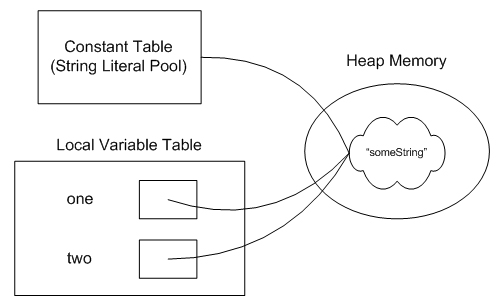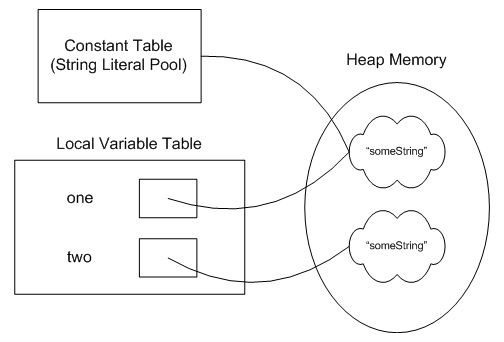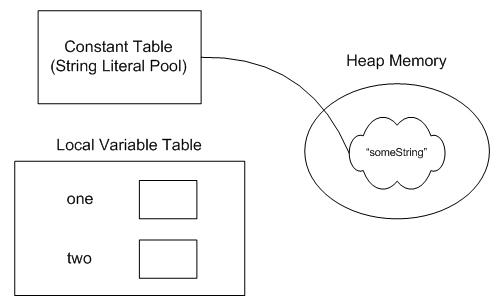
| Source Code |
public class ImmutableStrings
{
public static void main(String[] args)
{
String start = "Hello";
String end = start.concat(" World!");
System.out.println(end);
}
}
// Output
Hello World!
|
Concatenates the specified string to the end of this string.Notice the part I've highlighted in bold. When you concatenate one String to another, it doesn't actually change the String object, it simply creates a new one that contains the contents of both of the original Strings, one after the other. That's exactly what we did above. The String object referenced by the local variable start never changed. In fact, if you added the statement System.out.println(start); after you invoked the concat method, you would see that start still referenced a String object that contained just "Hello". And just in case you were wondering, the '+' operator does the exact same thing as the concat() method.
If the length of the argument string is 0, then this String object is returned. Otherwise, a new String object is created, representing a character sequence that is the concatenation of the character sequence represented by this String object and the character sequence represented by the argument string.
Examples:
"cares".concat("s") returns "caress"
"to".concat("get").concat("her") returns "together"
Parameters:
str - the String that is concatenated to the end of this String.
Returns:
a string that represents the concatenation of this object's characters followed by the string argument's characters.
| Source Code |
public class ImmutableStrings
{
public static void main(String[] args)
{
String one = "someString";
String two = "someString";
System.out.println(one.equals(two));
System.out.println(one == two);
}
}
// Output
true
true
|

| Source Code |
public class ImmutableStrings
{
public static void main(String[] args)
{
String one = "someString";
String two = new String("someString");
System.out.println(one.equals(two));
System.out.println(one == two);
}
}
// Output
true
false
|

| Source Code |
public class ImmutableStrings
{
public static void main(String[] args)
{
String one = "someString";
String two = new String("someString");
one = two = null;
}
}
|
